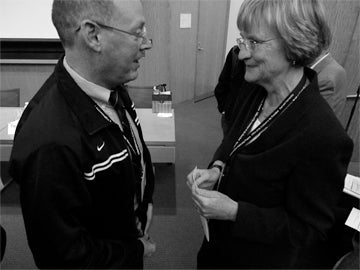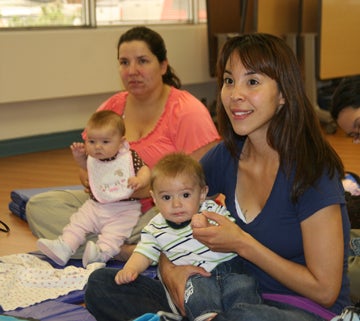News & Highlights
Topics: Community Engagement, Health Disparities
Rx for Health Justice
Diagnosing and treating the world’s persistent health disparities.

The statistics of health disparities can be startling, and the interplay of environmental, genetic, historical and social forces at their root can be surprisingly complex.
Every year, for example, 96,000 black people in the United States die premature deaths due to health disparities, according to David Williams, Florence Sprague Norman and Laura Smart Norman Professor of Public Health at Harvard School of Public Health, speaking at a University-wide symposium on health disparities on Oct. 11 in Cambridge.
“That’s the equivalent of a jumbo jet with 260 passengers crashing and everyone on board dying every day,” said Williams, also professor of African and African American Studies and of Sociology at Harvard University.
To get to the root of some of these startling statistics, and to help at-risk populations, it’s important for researchers to have access to relevant data and to design studies that include information about genetics, economics and personal histories, said Alexandra Shields, director of the Harvard/Massachusetts General Hospital Center on Genomics, Vulnerable Populations, and Health Disparities.
“As if these challenges were not enough, we need to be able to do this over the life course and inter-generationally,” said Shields, who is also HMS associate professor of medicine at Mass General. For example, she said, if a girl experiences physical or sexual abuse during her childhood, it can significantly increase the risk of disease in her own children.
But new research techniques and partnerships are evolving to help overcome the challenge of solving these complex problems.
“Our ability to combine recent advances in fields as diverse as genomics and the social sciences offers unprecedented opportunities to understand and address these complexities,” said Harvard University Provost Alan Garber, Mallinckrodt Professor of Health Care Policy at Harvard Medical School, professor of economics in the Faculty of Arts and Sciences, and professor of public policy in the Harvard Kennedy School of Government.
Garber pointed to the symbiotic relationship between researchers who are seeking to understand the nature and causes of disparities and the practitioners who are seeking to eradicate inequity.
Practitioners who are working on improving the health system and overcoming disparities in care delivery face challenges every bit as daunting as their colleagues who are focused on research, but panelists said they were optimistic about the possibilities for improvement in this area as well.
Paul Farmer , the Kolokotrones University Professor noted that progress in medicine in the last century has been truly revolutionary.
“We now have technology and treatments that can alter the course of these inequities,” he said.
Farmer said the model that he has developed for work in resource poor environments overseas as a founding co-director of Partners In Health—building a coherent system that combines community health workers in patient’s homes and villages with local clinics and nearby hospitals—could help alleviate health inequities closer to home, as well.
“Whether you’re in the Navajo nation, in rural Haiti or in parts of Boston, you have to build a system,” said Farmer, who is also chair of the HMS Department of Global Health and Social Medicine.
“Whether you’re in the Navajo nation, in rural Haiti or in parts of Boston, you have to build a system,” said Farmer, who is also chair of the HMS Department of Global Health and Social Medicine.
Faculty from Harvard Medical School and affiliated hospitals, the Harvard School of Public Health, and other university departments discussed persistent health disparities in the U.S. and around the world in a series of rapid-fire, seven minute presentations divided into two panel discussions.
Participants touched on the historical, ethical and moral context of the problem, discussed the imperatives of cultural literacy and humility, and outlined the research challenges and opportunities in this complex field, intertwining questions of community and personal identity, political and social power with deep historical narratives and cutting edge genetics and biomedical science.
They also discussed work that is underway to overcome health barriers on the personal, community, national and international level.
In the face of complicated research questions and often intractable social, political and economic problems, the panelists shared a sense of optimism and a sense of commitment. They noted that there are many things that can be done to begin to improve the situation — some as simple as taking the time to think about how long a patients’ bus trip to a clinic might take.
“Feel good about what you can do, don’t feel bad about what you can’t get to yet,” said Donald Berwick, HMS lecturer on health care policy, senior fellow at the Center for American Progress, and former administrator of the Centers for Medicare and Medicaid Services. “Don’t feel guilty, just get started.”
The event was Sponsored by the Offices of the President and Provost and co-sponsored by: The Harvard/MGH Center on Genomics, Vulnerable Populations, and Health Disparities; The Harvard Catalyst Health Disparities Research Program; Office of the Assistant to the President for Institutional Diversity and Equity

